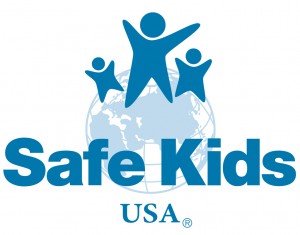 After a year in which a record 49 children from 2 months to 6 years of age died from heat stroke after being left unattended in a vehicle, Safe Kids USA has started a prevention campaign to get the message out before the temperatures heat up.
After a year in which a record 49 children from 2 months to 6 years of age died from heat stroke after being left unattended in a vehicle, Safe Kids USA has started a prevention campaign to get the message out before the temperatures heat up.
The first 2011 death of a child from being left alone in a closed vehicle – a mother accidentally left her child in the car during a long work day – was recorded earlier this month in Texas, where 13 children died in 2010.
In fact, Safe Kids USA, says that with outdoor temperatures of 80 degrees, temperatures inside a closed car can easily top 120 degrees. The body temperature of children rises 3 – 5 times faster than adults, and as a result, children are much more vulnerable to heat stroke.
“These tragedies can happen anywhere at any time as child deaths in cars and trucks from heat stroke have occurred as early as February and when the outside temperature was as low as 57 degrees F,” said John Formisano, president and CEO of Safe Kids Worldwide.
“Our coalition network across the United States will help alert the 250 million vehicle owners to the dangers because everyone needs to understand this critical issue and how to ensure the safety of children.”
Safe Kids USA has a network of 600 coalitions and chapters. Its “Never Leave Your Child Alone in a Car” program will mobilize police and fire, hospitals, government agencies, child care centers, businesses and others to share with parents and other caregivers prevention messages to address the dangers to children in vehicles.
The program will include an advertising campaign of billboards, print ads, web banners and radio announcements as well as tip sheets. The materials will be available in English and Spanish.
The General Motors Foundation, a longtime partner of Safe Kids, is sponsoring the campaign. Never Leave Your Child Alone in a Car is a key component of the Safe Kids USA child passenger safety program sponsored by the GM Foundation.
“Providing the support necessary for the Safe Kids coalitions and community partners to effectively educate families on how they can avoid these tragic and needless deaths is an important priority for the Foundation,” GM Foundation Chairman John Montford said.
Here’s what parents and caregivers need to know and why:
- Lock cars and trucks – 30% of the recorded heat stroke deaths in the U.S. occur because a child was playing in an unattended vehicle. These deaths can be prevented by simply locking the vehicle doors to help ensure that kids don’t enter the vehicles and become trapped.
- Create reminders – Many child heat stroke deaths occur because parents and caregivers become distracted and exit their vehicle without their child. To help prevent these tragedies parents can:
- Place a cell phone, PDA, purse, briefcase, gym bag or something that is needed at your next stop on the floor in front of a child in a backseat. This will help you see your child when you open the rear door and reach for your belongings.
- Set the alarm on your cell phone as a reminder to you to drop your child off at day care.
- Set your computer calendar program to ask, “Did you drop off at daycare today?” Establish a plan with your daycare that if your child fails to arrive within an agreed upon time that you will be called within a few minutes. Be especially mindful of your child if you change your routine for daycare.
- Dial 911 immediately if you see an unattended child in a car. EMS professionals are trained to determine if a child is in trouble. Check vehicles and trunks FIRST if a child is missing.
For more information on preventing child heat stroke deaths, please visit www.ggweather.com/heat and www.safekids.org/nlyca.
Safe Kids USA is part of Safe Kids Worldwide, a global network of organizations whose mission is to prevent unintentional childhood injury, the leading cause of death and disability to children ages 1 to 14. More than 600 coalitions and chapters across the country and 19 member countries across the globe bring together health and safety experts, educators, corporations, foundations, governments and volunteers to educate and protect families. For more information visit www.safekids.org.
